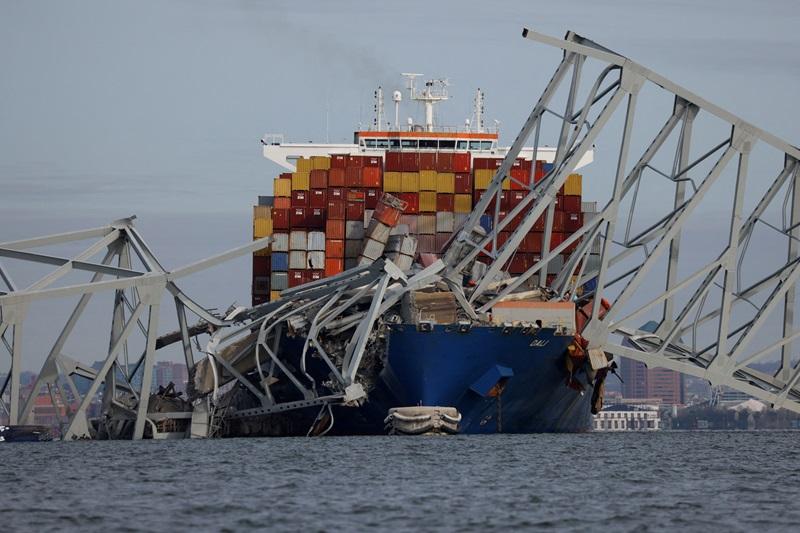In the aftermath of the bridge collapse, Maryland’s governor is calling on Congress to pass funding for the reconstruction

In the aftermath of the collapse of Baltimore’s Francis Scott Key bridge, Maryland Governor Wes Moore issued a plea on Sunday for bipartisan cooperation to secure federal funding vital for the bridge’s reconstruction and the revival of the port economy. The catastrophic incident occurred early on Tuesday when a massive container ship lost power, resulting in the bridge’s collapse and the tragic loss of six lives. The debris from the bridge has obstructed the shipping channel of the Patapsco River, crippling operations at the Port of Baltimore, the largest hub for vehicle imports and exports in the United States, as well as a crucial gateway for farm and construction equipment.
To address the immediate aftermath, the Biden administration swiftly allocated $60 million in emergency aid to facilitate debris removal and port reopening. However, federal estimates suggest that the total cost of rebuilding the bridge could escalate to $2 billion, necessitating congressional approval for funding. President Biden has pledged federal coverage of the expenses, contingent upon bipartisan legislative support.
Governor Moore underscored the urgency of bipartisan collaboration, emphasizing that the reconstruction efforts are not solely about benefiting Baltimore but are critical for the broader national economy’s recovery. He urged Republicans to prioritize the country’s economic resurgence over partisan divides, highlighting the Port of Baltimore’s pivotal role in driving economic growth.
Transportation Secretary Pete Buttigieg echoed Moore’s sentiments, expressing optimism about Congress’s willingness to approve the necessary funds. Buttigieg emphasized the bipartisan tradition surrounding infrastructure and emergency response, citing the previous passage of Biden’s $1 trillion infrastructure package in 2021.
As cleanup operations commenced, with a massive crane beginning to dismantle sections of the collapsed bridge, officials grappled with the complexity of the task ahead. Efforts to retrieve the bodies of the deceased construction workers have been impeded by hazardous conditions and wreckage. Despite the challenges, plans are underway to establish an alternate route for essential marine traffic to mitigate the impact on commercial operations.
Although concrete timelines for the port’s reopening and bridge reconstruction remain elusive, officials remain committed to navigating the challenges ahead and restoring normalcy to Baltimore’s critical infrastructure. President Biden’s scheduled visit to the collapse site underscores the administration’s commitment to supporting recovery efforts and addressing the urgent needs of the affected communities.





